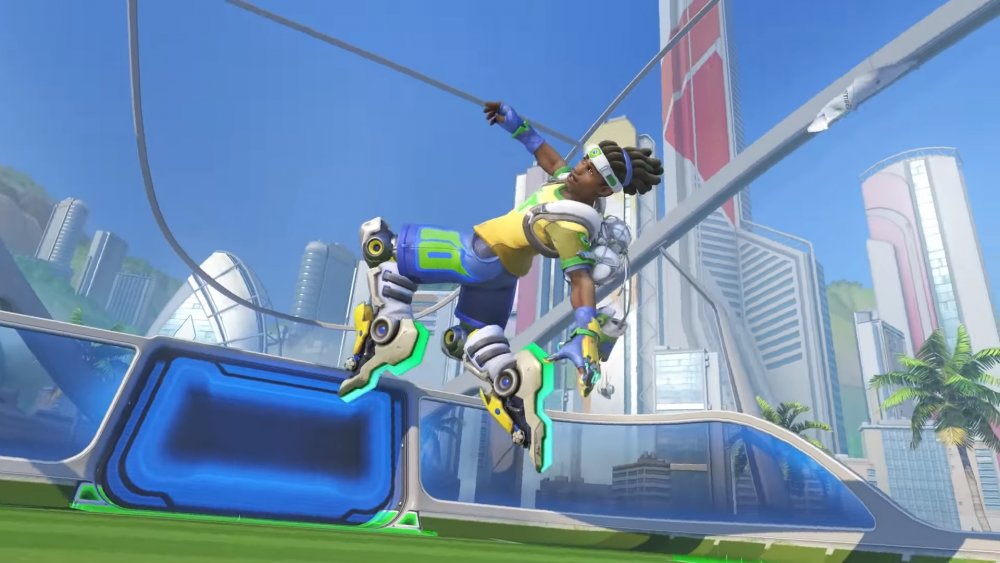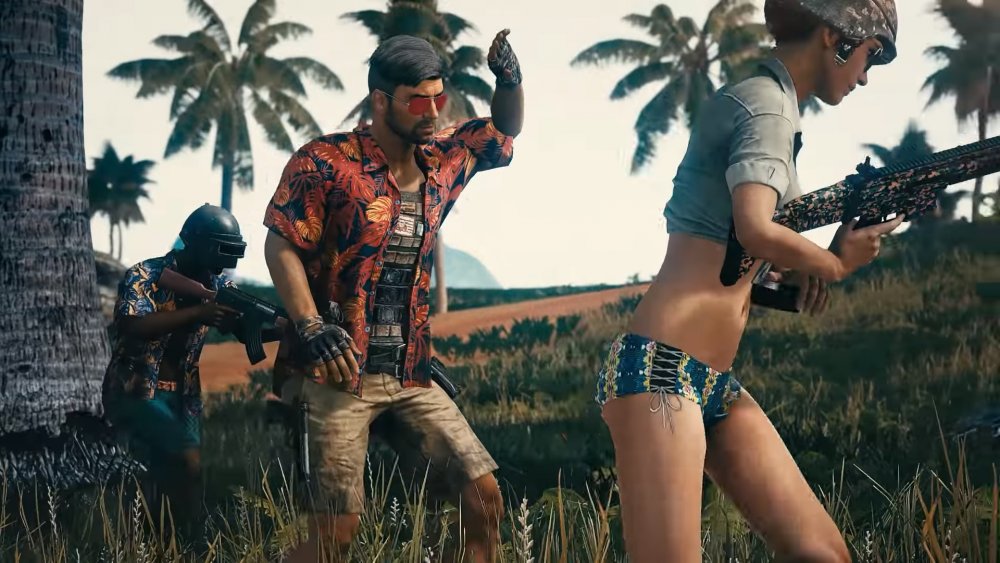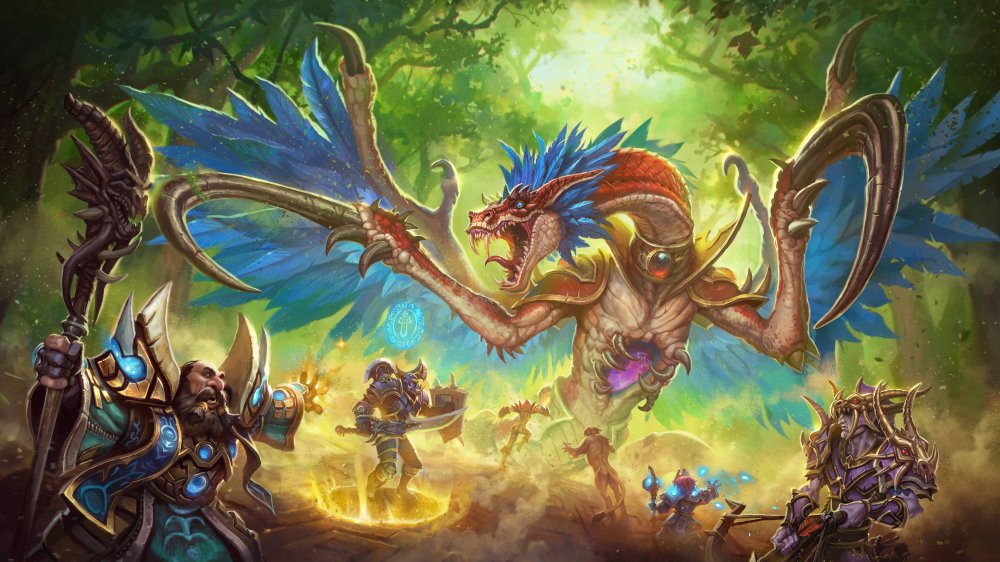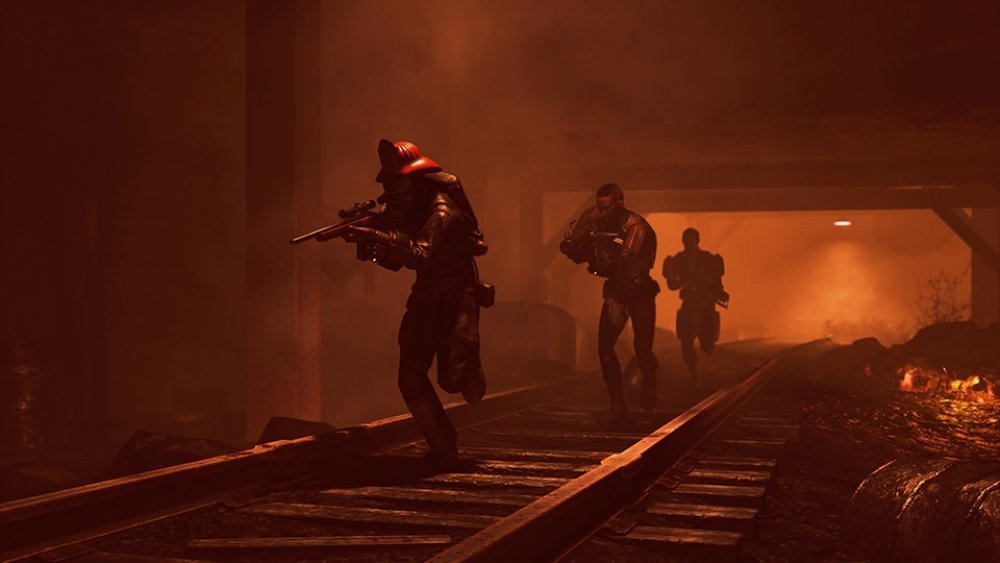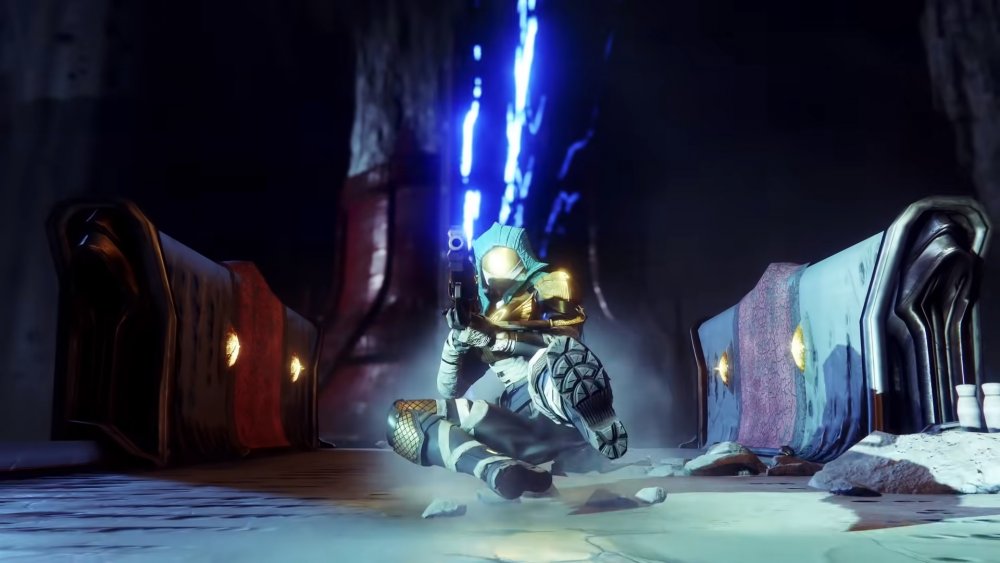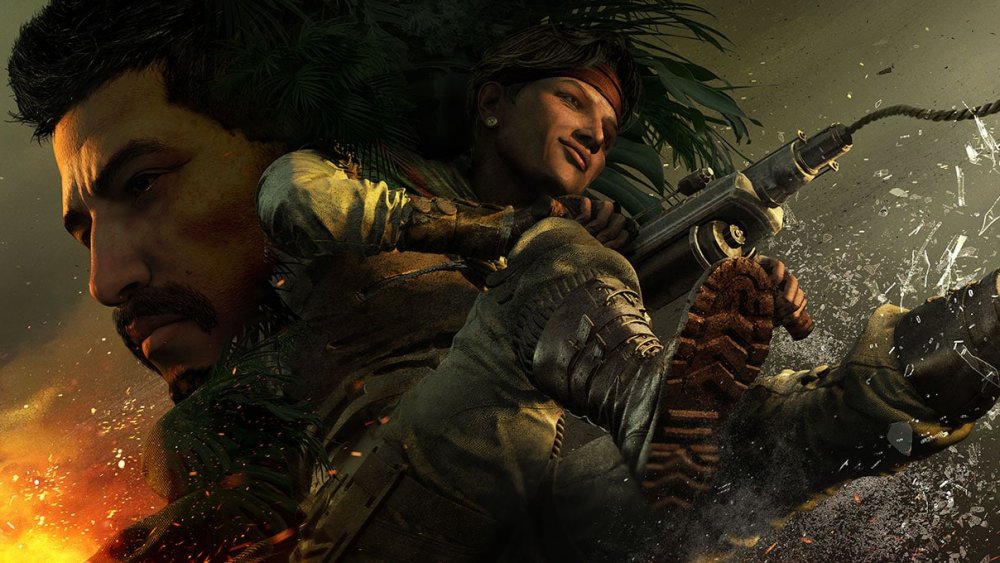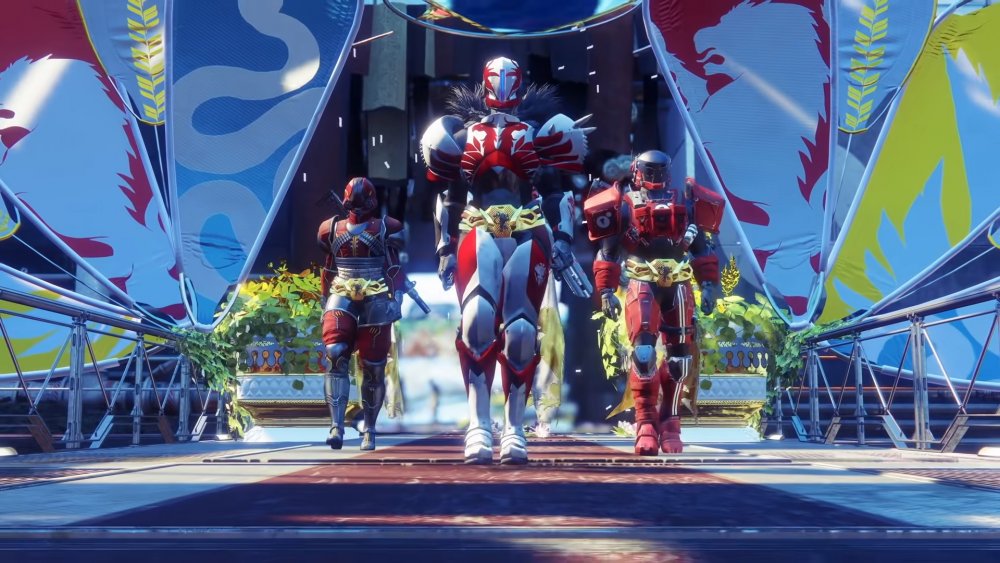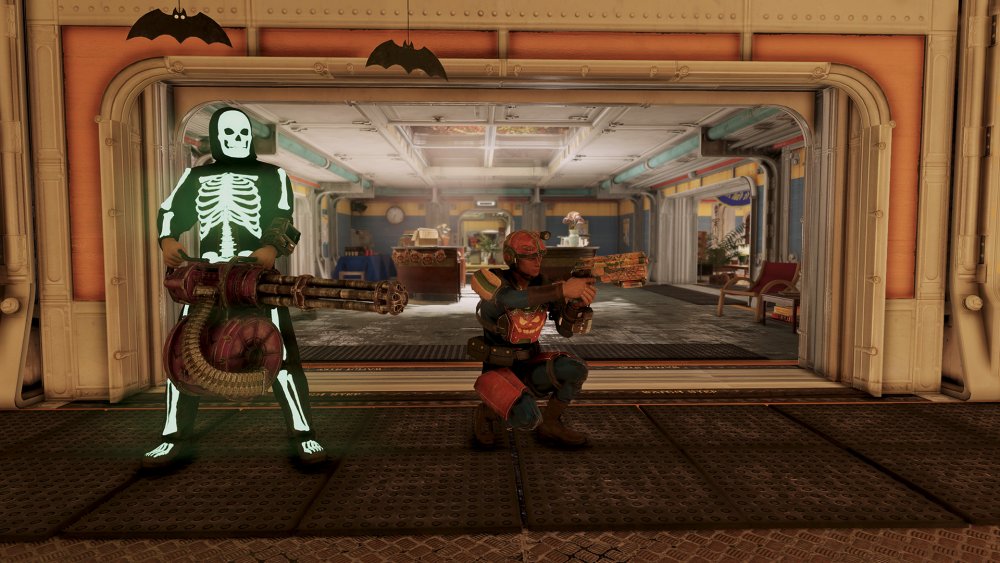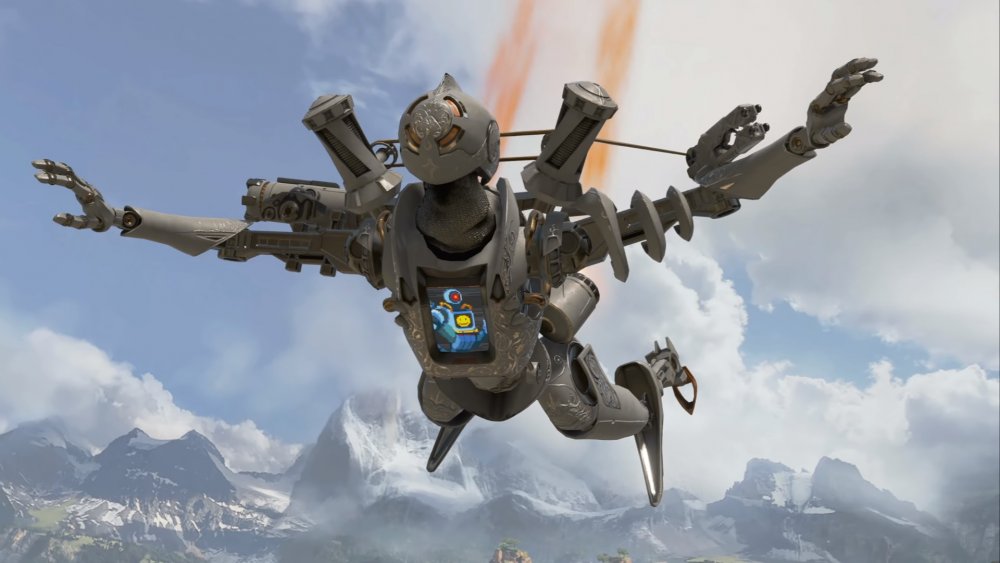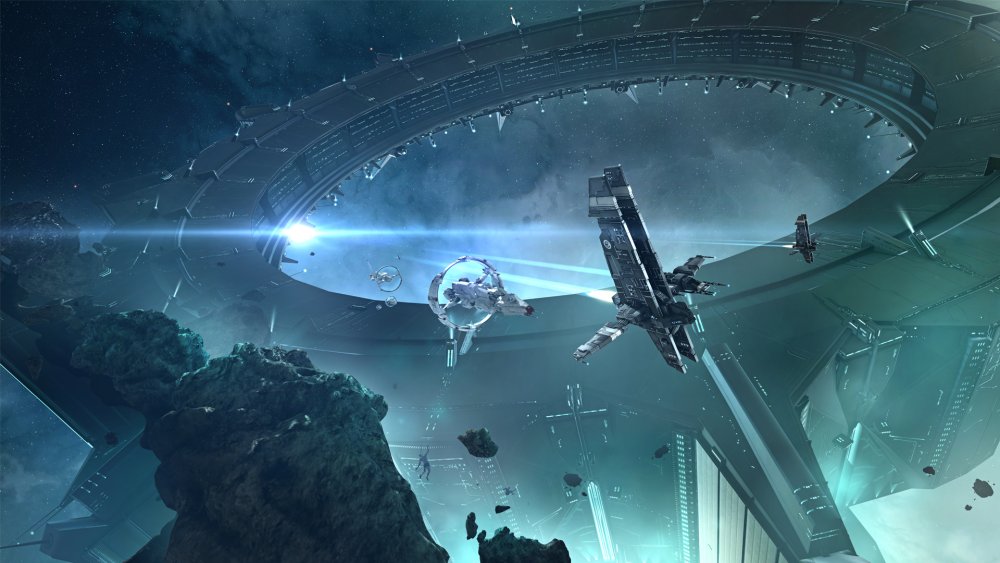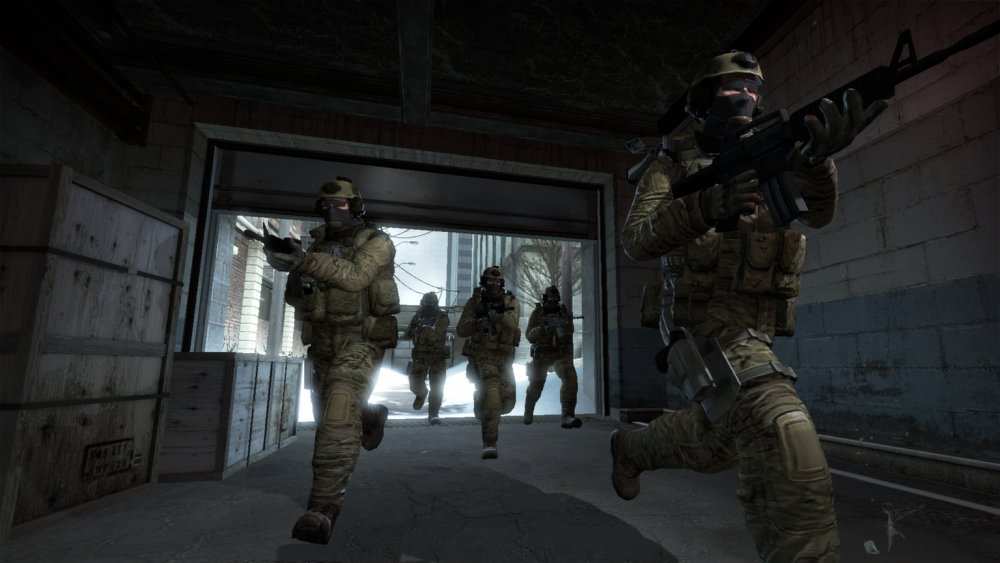Community Game Events That Ended Up Being Terrible
Ah, the community event. What better way to relax than to log into your favorite game, team up with online friends, and experience a limited-time extravaganza filled with fresh missions and rewards? Well, that's how community game events work in an ideal world, but in reality, they can be more frustrating and painful than a root canal performed without anesthetics.
Problems often crop up in online games, and when more people log in to participate in an event, these problems can crash the party. An errant bit of code can garrote a client, or a game server might fold in on itself under load pressure. Or maybe, just maybe, the event was poorly designed and shouldn't have progressed past the brainstorming phase.
No matter the cause, community events are often a breeding ground for Murphy's law. Take a look at a few of the worst examples.
Pokemon Go Fest used Server Error. It's super annoying!
Pokemon Go is the Magikarp of mobile games. It launched in a weak, barebones state that flopped around and crashed if you so much as sneezed. However, players and developers stayed with it, and just like Magikarp eventually evolve into the mighty Gyarados, Pokemon Go blossomed into a powerhouse of a title.
Countless players now live out their dreams of becoming Pokemon masters, and Niantic holds semi-annual events in cities around the world. However, its original foray into live festivals went all Voltorb on participants and Self-Destructed.
The first Pokemon Go Fest will live on in infamy. Thousands of players attended the ceremony, cramming their innumerable bodies into Chicago's Grant Park. Everyone expected a fun, care-free party full of music, camaraderie, and Heracross (which are normally exclusive to the Southern Hemisphere). Instead, participants only experienced frustration.
Game clients crashed in seemingly orchestrated unison, and the only thing players had to show for braving the hot Chicago sun were bad moods — and a lawsuit that forced Niantic to reimburse participants. At least Niantic learned its lesson and avoided further Pokemon Go Fest problems.
The same Lucioball event in Overwatch is not anyone's jam
Though the apocalyptic Warcraft 3: Reforged debacle remains fresh in many gamers' minds, plenty of people still praise Blizzard Entertainment for its creative in-game events. Who can forget the summer of 2016, when the company transformed Overwatch into a makeshift Rocket League match thanks to ingenious implementation of Lucio's moveset and a giant soccer ball? The developers at Blizzard apparently love their creation, because they brought the event back the next year. And the year after that.
In a vacuum, Lucioball is a fun distraction from the normal hustle and bustle of Overwatch. No capping points or pushing payloads, just wall-riding and slamming giant soccer balls into goals. While most gamers enjoyed the game mode during its first outing, many complained when it returned for subsequent summers.
The event featured new character skins. That was it. No other alterations to the game formula, just Lucio clones punching giant balls around until the inevitable heat death of the universe — or the end of the summer event, whichever came first. As the saying goes, "insanity is doing the same thing over and over again and expecting different results."
PUBG Corp celebrated a new map with a grindy, aggravating battle pass
No matter your battle royale game of choice, you cannot deny PlayerUnknown's Battlegrounds lit the battle royale fuse. The title has remained in gamers' minds in one form or another, especially when it tries to win the attention (and wallets) of lapsing audiences. And, like many titles that attempt to bring players back into the fold, PUBG sometimes borrows ideas without understanding what makes them work.
PUBG Corp delivers each new PUBG update with a bang, and when the company introduced the Sanhok map, it also unveiled the PUBG Battle Pass. The pass took a page from games like Fortnite and gave players shiny rewards for participating in matches — for a fee. However, once gamers saw the battle pass, complaints cropped up like mushrooms. Huge, poisonous mushrooms wielding AK-47s.
Unlike other battle passes, PUBG's pass rewards were mostly temporary, as in players could only use them for a few days before they evaporated into digital dust. And since the pass only spanned 30 days, earning the rewards was a grind-fest. A grind-fest for temporary items. At least PUBG Corp listened to feedback and reduced the grind. It even added two free non-temporary items.
That one time a boss almost wiped out a game world
While Blizzard Entertainment never hosted in-game events to celebrate the launch of dungeons and raids, their reveals were treated like huge revelations. Moreover, players banded together in guilds to finish each challenge first, thus earning bragging rights. You can imagine the irony of a guild racing to the finish line only to be rewarded with the plague.
By now, almost everyone has heard of the Corrupted Blood incident. The final boss of World of Warcraft's first 20-man raid, Hakkar the Soulflayer, challenged gamers with a unique game mechanic: social distancing. He infected players with the Corrupted Blood disease, which spread to others within a few feet. Luckily, everyone was magically cured after they left the raid, but many Hunters stored their still-infected pets before departure.
When the raid first released, the pets weren't cleansed. One infected Velociraptor later, and the Corrupted Blood spread like smallpox. Cities drowned under seas of corpses. Some players escaped death by self-isolating in remote locations, and trolls (no, not Darkspear trolls) traveled overseas to infect enemy nations.
The Corrupted Blood brought servers to their knees before developers patched the apocalyptic oversight, but it also gave many real-world disease experts hope. What better way to study how an epidemic works than to examine one in a virtual environment? All it cost was a few million digital lives.
Fallout 76's beta put its worst foot forward
Todd Howard, Bethesda's executive producer, touted Fallout 76 as the Fallout MMO experience fans wanted. He mdae grandiose promises regarding the game, such as how its new rendering, lighting, and landscape technology offers "sixteen times the detail."
Howard was so confident he hyped the Fallout 76 beta, promising everyone would enjoy the test while joking it might suffer from bugs. The audience might have laughed with him during the announcement, but the ensuing nuclear disaster cast his words in a much more unforgiving light. Bugs infested the Fallout 76 beta and consumed everything they found, but the worst ones were outside of the game. How, you ask?
Participants discovered a glitch where the beta launcher deleted the entire game if players pressed any button while the beta downloaded. And in a surprise twist, some players later discovered that the launcher refused to uninstall the beta. The beta also suffered from numerous other glitches that paved the way for Fallout 76's disastrous launch.
Normally, bugs that automatically delete a game and prevent you from uninstalling it would be mutually exclusive, but not in Fallout 76.
Turns out Felwinter's Lie was how easy the event was
Many Destiny weapons didn't make the cut for Destiny 2, such as the exotic rocket launcher Gjallarhorn and the legendary shotgun Felwinter's Lie. Well, that's not entirely true as Felwinter's Lie is actually in the game thanks to a community event.
Felwinter's Lie, which packs all the power of a normal shotgun without having the range of a spit wad, is an infamous PvP-wrecker in the original Destiny. Naturally, players would love to wield it in Destiny 2. To unlock the weapon, players have to work together in the community-driven quest event "The Lie."
Originally, the missions involved proved too daunting. According to some quick mathematical equations, players would have had to spend over a month grinding quests to unlock the weapon. The Lie didn't last that long, thereby rendering the shotgun immaterial. So, Bungie tweaked the event's progression to make sure the promise of Felwinter's Lie wasn't a load of hot air.
However, turns out the last step of the event was broken anyway, so Bungie had to step in once again and fix The Lie. Maybe the titular lie was that the event was properly playtested before launch.
Bunny Day's eggs multiplied like rabbits, much to everyone's dismay
Animal Crossing: New Horizons might not be an MMO, but the game certainly played like one during the community event Bunny Day. While the celebration isn't new to the franchise, Nintendo tried something a little different for the Switch entry's inaugural Spring celebration. Instead of collecting eggs to trade for special rewards, players could wander their islands, uncover eggs, and smash them together to craft furniture. Good on paper, soggy in practice.
Rather than striking a balance between the eggs players found and the availability of recipes that required eggs, New Horizons gave players too many eggs and not enough recipes. To make matters worse, eggs were hidden as universal resources. That fossil you dug up? Actually an egg. That fish swimming in the ocean? Actually an egg. That tarantula chasing you? Actually an ... no, wait, it's just a tarantula. Bugs were the only thing that were not eggs.
Bunny Day's overabundance of eggs and scarcity of literally anything else (insects notwithstanding) left players hopping mad.
It's difficult to enjoy Rainbow Six Siege when it's under DDOS assault
Sometimes a game event is ruined because of a coding oversight or questionable design choice, and other times it's ruined because trolls want to set game servers on fire.
Rainbow Six Siege is a fairly popular multiplayer shooter published by Ubisoft. The game isn't a battle royale title, but it maintains a significant and dedicated fanbase, big enough to justify continual updates with new features, playable characters, and events. These updates, called seasons, are treated as in-game community events where players fight for glory, leaderboard bragging rights, and skins.
Rainbow Six Siege is a popular target for distributed denial-of-service (DDoS) attacks, and hackers had a field day in 2019 with the Operation Ember Rise season. DDoS attacks crippled the servers, and many players waved goodbye to their competitive ranked leaderboard dreams.
These DDoS attacks were the straw that broke Ubisoft's back — and patience. The company struck back at the DDoS attackers with the fury of an angry sledgehammer. Bans were handed out like pink slips, and Ubisoft later followed up this retaliation with a lawsuit. Turns out, Ubisoft isn't all that soft when it comes to server safety.
The Destiny 2 Guardian Games were a titan-ic mess
Destiny 2 gives new meaning to the term class warfare. Players love to claim their preferred class is superior to all others, so Bungie decided to let them put their Glimmer where their mouths were. The Olympics-esque Guardian Games would determine once and for all who reigns supreme: Titan, Hunter, or Warlock.
From day one, the Guardian Games were off to a bad start because of population imbalances. Hunters are more popular than Warlocks and Titans (apparently the Hunters' capes are to blame), so points had to be skewed so Hunters wouldn't unfairly tip the scales. But, even with that potential problem out of the way, the Guardian Games couldn't escape the ever-looming threat of bugs.
Gamers complained of broken bounties and medal quests needed to accumulate points. To add to the frustration, some bounties actually worked but were worded poorly, so players didn't know which were busted and which required a few more proofread passes.
The Guardian Games were supposed to bring gamers together, but instead they tore the playerbase apart.
Fallout 76's Halloween event was as broken as the rest of the game
Fallout 76 must be made out of insect pheromones because it attracts enough bugs to metamorphose the game into the internet's punching bag. Every new update, feature, and event is crawling with enough bugs to give entomophobia sufferers a heart attack. While bugs make for the ideal scary decoration during Halloween, the kind that cropped up during Fallout 76's Mischief Night celebration weren't what players had in mind.
Mischief Night was supposed to give players a respite from the mutant-strewn wasteland and let them participate in some good-old tricking and treating. Gamers played tricks on harmless cars and nuclear robots and were rewarded with treats, i.e., costumes. But thanks to some bad code, Fallout 76 played a trick on players. Game client crashes were the flavor of the day and some rewards didn't work as intended. Plus, many gamers were underwhelmed by the event's rewards in general.
Some players believe that Mischief Night has yet to end in Fallout 76, if only because they think the game is one big Mischief Night prank Bethesda is playing on the general gaming public.
Apex Legends' Iron Crown event locked cosmetics behind expensive loot boxes
Apex Legends took the battle royale scene by storm. Unlike similar titles, the game provides a tactical, team-based hero shooter spin on the formula. More importantly, Apex Legends initially surprised gamers because of its quality and fun factor — and because its monetization strategy was consumer friendly given the notorious history of its publisher, EA. Then the Iron Crown event ended that honeymoon period.
The Iron Crown community event introduced new modes to mix up the Apex Legends action, including a solo mode and the high-flying Octane Town Takeover. But, as with any in-game event, the meat of Iron Crown was the new cosmetics. As usual, they were locked behind loot packs, but players could only earn two through normal gameplay. The rest could only be purchased at seven bucks a pop. Players had to drop $140 to unlock everything (or if the underlying RNG system hated them). Anyone who didn't feel like earning two paltry loot packs had to shell out $154 instead.
The community fumed more than Caustic's Nox Gas Trap and gamers rioted through the internet's streets. EA's solution to calm the masses? Sell legendary skins individually in the Apex Legends store for more than double the cost of a loot pack. That's, um, an interesting compromise.
Drifter Invasion blindsided EVE Online players
EVE Online is the community-driven MMORPG other titles envy. Players have total freedom and are the sole driving force of the in-game economy. Everything from guilds to tournaments are built and run by players. But, EVE Online's devs are not completely laissez-faire, as they have tried their hands at creating events to shake up the status quo. These don't usually end well.
One of EVE Online's newest NPC factions is the Drifters, who are hostile towards everyone and are always adapting (not unlike Star Trek's Borg). While players can avoid Drifters if careful, EVE Online's developers decided to launch an unannounced and unprecedented Drifter Invasion on the unprepared playerbase. EVE Online's digital universe exploded into plasma and player tears as Drifters decimated gamer bases and armies. Countless players lost all their hard work, which obviously led to a general sense of displeasure regarding the "event."
Many players despised the Drifter Invasion because it was so sudden. Usually, these kinds of events are prefaced with some sort of warning or developer announcement. Instead, players were completely blindsided. Drifters struck hard and struck fast, and before anyone could muster a defense, the damage had already been done.
To be fair, an unprovoked invasion is in-character for the Drifters, but that doesn't excuse how much the event irked many gamers.
One community-driven esports event bankrupted a company
Esports tournaments are a spectacle where gamers cooperate with one another and compete for prizes and glory. These events make for some nail-biting experiences, but in one particularly infamous tournament, even the weather turned against participants. Meet Gaming Paradise, the worst esports tournament ever.
Envisioned as a small but exciting tournament consisting of Counter-Strike: Global Offensive and DOTA 2 matches in Slovenia, Gaming Paradise encountered problems from the start. Buses meant to ferry participants from the airport to the hotel ran several hours late. The first preliminary match was called on account of rain. Computers meant for the tournament were stolen, only to be replaced with second hand, under-powered PCs that ran CS:GO as smoothly as broken glass.
Issues went from bad to worse when Gaming Paradise actually kicked off. Event organizers scrambled so hard to get their potato PCs in working order, they forgot to test the internet connection, and the DOTA 2 portion of the tournament was canceled. However, that's nothing compared to what happened next. The event organizers forgot to pay for the hotels and venue, so the local police confiscated participant passports, which meant everyone was stuck in a foreign country.
In the end, the winning team walked away without any of their promised earnings, and the organizers went bankrupt. At least everyone got their passports back. Small victories, small victories.



